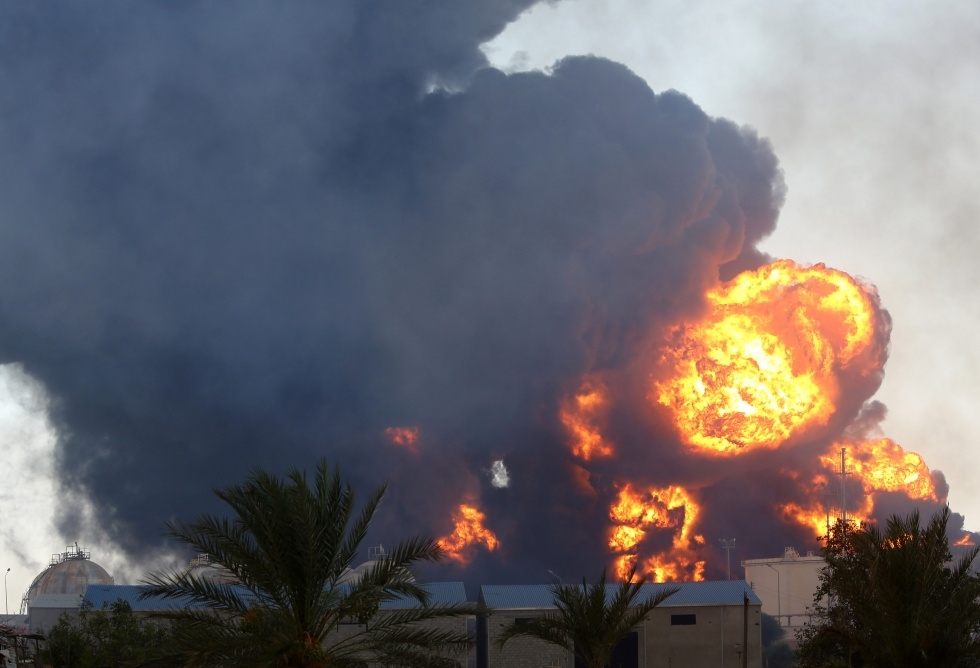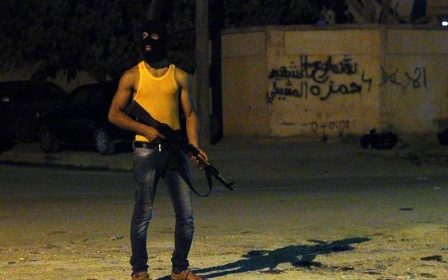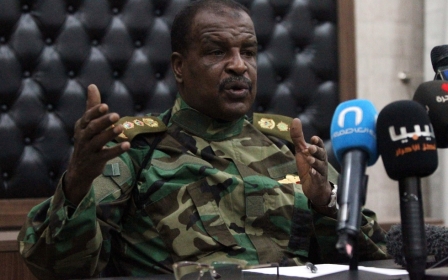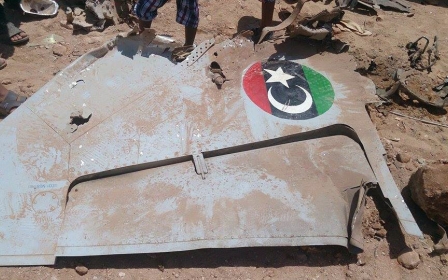Amid fierce opposition, Libyan House of Representatives holds first meetings

Libya’s new parliament has split before commencing its first session, while militia wars in the country’s two main cities are turning urban areas into battlefields.
Amid fears of civil war, and an Islamist Emirate forming in Libya’s main eastern city, the newly elected House of Representatives (HoR) Libya’s parliament, has decided to hold an emergency meeting two days before their first session on Monday, to tackle the problems at hand.
“The meeting will be an announcement to Libyans and the world that the House of Representatives is now the legitimate body in Libya,” said Younis Fanoush, HoR representative of Benghazi.
Fanoush said that 153 of the 188 members of parliament have made the trip to the meeting location in Tobruk, exceeding the legal number needed to commence their first session. The city of Tobruk is a business centre in the east of the country, nearest to Libya’s borders with Egypt. 1400 km east of the Libyan capital Tripoli, it is one of the few places in Libya where all members can meet safely.
“We really wanted to commence our first meeting in Benghazi, but because of the security situation in the city, we felt Tobruk was a better option,” explained Mr. Fanoush. Tobruk is where some members of the HoR plan to hold their first session on Monday.
The HoR is Libya’s second democratically elected parliament since the revolution that overthrew late Libyan leader, Muammar al-Gaddafi in 2011.
Like the General National Congress (GNC), which was the first post-revolution parliament, the HoR is meant to include 200 representatives from all cities and towns in Libya. But with locals in Derna, a mountain town under control of extreme Islamist militias, not able to vote in the east, and minority groups feeling they will not be well represented choosing not to vote in Libya’s west, only 188 representatives were elected.
While calling the emergency meeting illegitimate, the chairman of the Islamist-led GNC, Nuri Abusahmain said in a statement released on Wednesday that the hand-over from the GNC to the HoR would be held in Tripoli, not Tobruk. However, Fanoush refuted this, saying, “since the House of Representatives was voted in, Nuri Abusahmain has no legitimacy… we chose a city that is safe for all members to attend,” Mohamed al-Tharat, the HoR representative from Misrata disagreed. “We must stay on track with the constitutional declaration,” he said.
The declaration states that the first session will be held in Benghazi. “We will go to Tripoli for the handover, then go to commence the first session in Benghazi,” added al-Tharat.
With the HoR still in anticipation of its first official session on Monday, 4 August, it looks like they may assemble in two different cities.
Islamist leaning politicians and members of HoR have announced that they will not attend in Tobruk, in compliance with Abusahmain’s requests. “The members in Tobruk say Benghazi is not safe, well Tubruk is not safe for me,” said Mohamed al-Tharat.
Because of the recent deterioration in Libya’s security scene and the closure of a number of airports, even getting to Tobruk has proven a challenge for some HoR members. Members from the south of the country had to charter an oil flight, while members from the eastern city of Benghazi had to drive a long road across the desert to avoid towns under Islamist militia control. Some members from Tripoli had to travel to Tunisia, before flying on to Tobruk. “It wasn’t an easy trip, but it proves dedication to Libya’s cause,” said Fanoush.
Speculation is rising in Libya about whether the Islamist political front in Libya had a hand in the recent escalation of violence in an attempt to cling to power: "By refusing to go to Tobruk, it's become clear who is supporting the Islamists," said Izzadeen al-Ageel, a political analyst.
Just after the preliminary election results for the HoR were released, fighting started around Tripoli’s airport, when Islamist led militias from Misrata, a city 200 km east of Tripoli, launched heavy attacks on anti-Islamist militias from the town of Zintan, who are based at the capital’s international airport.
“This is an attempt at a coup by the Islamists,” said al-Ageel, “they did badly in the last elections, and now the parliament is moving away from their stronghold,” he said.
Al-Ageel said that the Libyan parliament had always been under constant pressure from militias, whilst in Tripoli, groups of fighters from Misrata who claim to be official forces legitimized by the previous parliament were keeping the Islamists in power.
“The Islamists want parliament to stay in Tripoli, or Benghazi where their militias can push parliament to meet their requirements,” he said.
The raging militia war in Tripoli between groups from Misrata and Zintan, militias formed of rebels who fought together against Gaddafi in Libya’s revolution in 2011, has resulted in hundreds of deaths since it began three weeks ago, with many civilians caught in the crossfire. The international airport in Tripoli has been out of service since the violence began, and a fuel storage tank site was hit in crossfire, setting four of the tanks ablaze and threatening to cause a humanitarian catastrophe if not kept under control.
In Benghazi, Islamist militia Ansar al-Sharia, who were involved in attacks against the US consulate in 2012, have claimed that they have full control over Libya’s largest eastern city, taking control of one of the army’s special forces barracks, destroying the last standing police station in the city, and declaring Benghazi an Islamic Emirate, a statement that caused outrage in the city and saw hundreds of civilians head to the streets in an attempt to reclaim their city. “The people know the Islamists are to blame for the security situation in Libya,” said al-Ageel. However, he felt it was not possible for Libya to pull itself out of this mess alone, saying it was important the government and parliament seek international support.
“The West puked all over Libya and left it a mess with their bombs in 2011,” said al-Ageel. “Now we only ask they help us clean the country up,” he said, something he felt was in both Libya and the international community's interest.
On Friday there were protests in Benghazi and Tripoli against the fierce militia wars that have been raging continuously for weeks in both cities, with demonstrations calling for an end to the bloodshed and the legitimization of a national army and police force. In Benghazi, protesters cheered as Libyan air force jets who have been attacking Ansar al-Sharia bases flew overhead. In Tripoli, with fuel unavailable, masses of people marched from Tajoura a district in the far east of the city to Martyr Square in the heart of Tripoli, chanting, “no to militias of both Misrata and Zintan.”
“The security of Libya is in decline every day, and has been for the past year. Militias are looking to take the upper hand in the country’s main cities and therefore it won’t be easy,” says al-Ageel. “The international community must play a big role in helping Libya,” he said.
New MEE newsletter: Jerusalem Dispatch
Sign up to get the latest insights and analysis on Israel-Palestine, alongside Turkey Unpacked and other MEE newsletters
Middle East Eye delivers independent and unrivalled coverage and analysis of the Middle East, North Africa and beyond. To learn more about republishing this content and the associated fees, please fill out this form. More about MEE can be found here.




